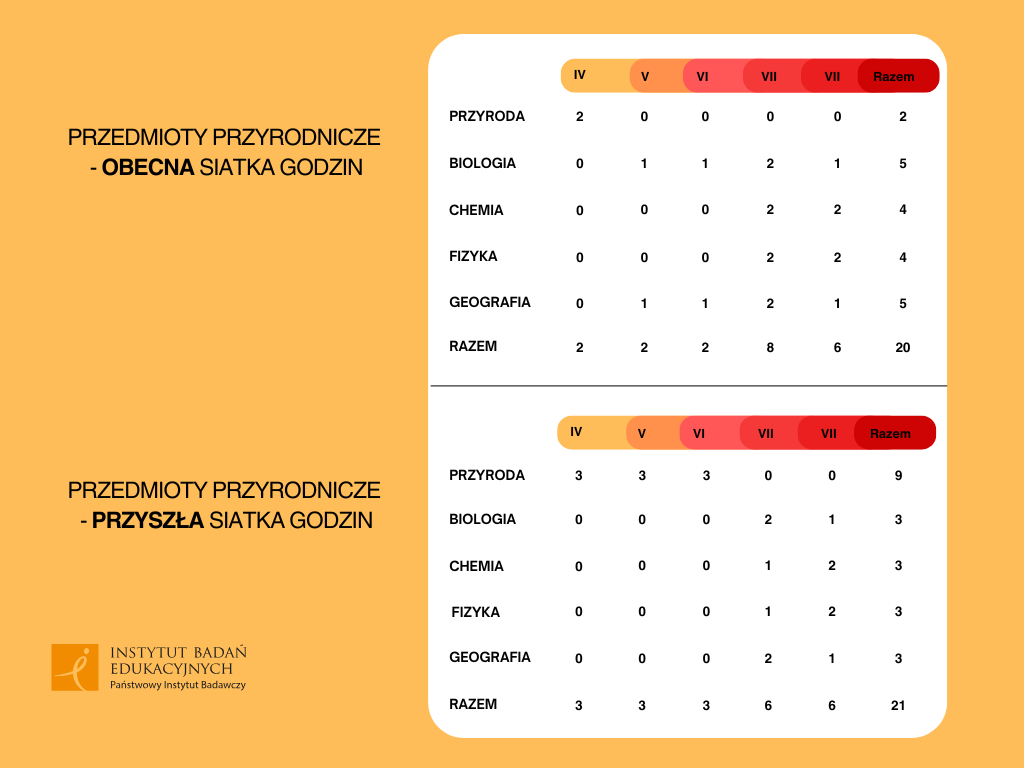The world around us is a system of interconnections. Natural sciences are the key to telling children about the world and helping them understand it in a comprehensive way. That is why we propose to increase the total number of hours of these subjects in primary school. However, we have distributed them more evenly so as not to overload the students with hours spent at school.
Science subjects – how many hours do pupils currently study science?
Two hours of science lessons per week in the fourth grade. Then, in the fifth and sixth grades, one hour of biology and geography each. In total, this makes six hours of science subjects per week in grades 4–6.
Add to this 4 hours of physics and chemistry and 3 hours of biology and geography in grades 7–8. This makes a total of 20 hours of science subjects per week in grades 4–8.
What is the new proposal?
The new proposal is:
- 3 hours of science per week in each year in grades 4–6,
- a total of 3 hours per week of biology, chemistry, physics and geography in grades 7–8.
This makes a total of 21 hours of science subjects in grades 4–8, assuming that physics and chemistry topics will appear at an earlier stage of education, as part of science.
Why do we think that science is a good solution
Because it works well in other countries. Children in Singapore, Australia and Ireland, for example, are taught an interdisciplinary subject like science. These are the countries with the best results in international studies on natural science. What’s more, their results in the PISA tests (2022 edition) have improved – unlike in Poland – despite the pandemic. On the other hand, Australia achieved a better result than Poland, even though, for example, the lockdown in Melbourne – the longest in the world – lasted for 9 months.
An interdisciplinary approach that integrates content from different subjects is also a way to develop deeper, more flexible and creative ways of reasoning. These methods allow for a comprehensive approach to problems and will be more useful in dealing with the challenges of the modern world. Such teaching methods also develop children’s curiosity about the world and allow them to familiarize themselves with difficult content and better assimilate it.
Which stage are we at in our work and coordination?
Last year, we asked external experts who had been working with us in working groups to analyze the situation. We compared it with the solutions of the most effective educational systems in the world and looked at the legal possibilities in this regard. We also had to take into account the number of hours that students are expected to spend in school each week and distribute the educational workload evenly.
This resulted in specific recommendations that we submitted for discussion at a meeting of the Council for Monitoring the Implementation of the Education Reform. These were forwarded to subject matter experts developing the core curriculum.
The core curriculum itself, which covers all natural sciences, will be subject to extensive consultation, both as part of our expert consultation this spring and at a later stage during implementation in accordance with the government’s legislative process.
We invite you to have your say in the consultation now!


